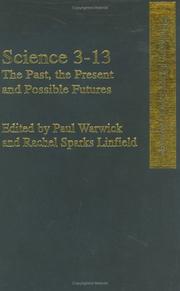| Listing 1 - 2 of 2 |
Sort by
|
Book
ISBN: 1280656050 0875862713 9780875862712 0875860877 9780875860879 0875862640 9780875862644 9786610656059 6610656053 Year: 1990 Publisher: New York Agathon
Abstract | Keywords | Export | Availability | Bookmark
 Loading...
Loading...Choose an application
- Reference Manager
- EndNote
- RefWorks (Direct export to RefWorks)
The study of politics has been profoundly influenced in the post-war era by the introduction of concepts and explanations that highlight the role of culturally determined norms and values in shaping the political process.This study examines three main perspectives from which the social sciences are discussed, and compares the divergent theories by which social, economic, and political phenomena may be explained. Rational-choice theory is contrasted with the structuralist and the culturalist perspectives. The controversy is then given substance through the introduction of three issues central
Consensus (Social sciences). --- Great Britain -- Economic conditions. --- Right of property -- Great Britain. --- Consensus (Social sciences) --- Legitimacy of governments --- Capitalism --- Right of property --- Protestantism --- Governments, Legitimacy of --- Legitimacy (Constitutional law) --- Revolutions --- Sovereignty --- State, The --- General will --- Political stability --- Regime change --- Authority --- Common good --- Power (Social sciences) --- Christianity --- Church history --- Protestant churches --- Reformation --- Ownership of property --- Private ownership of property, Right of --- Private property, Right of --- Property, Right of --- Property rights --- Right of private ownership of property --- Right of private property --- Right to property --- Civil rights --- Property --- Law and legislation

ISBN: 0203190645 1134586922 128040146X 0203137493 9780203190647 9780203137499 0415227860 9780415227865 0415227879 9780415227872 9786610401468 6610401462 9781134586929 9781134586875 1134586876 9781134586912 1134586914 Year: 2000 Publisher: London New York RoutledgeFalmer
Abstract | Keywords | Export | Availability | Bookmark
 Loading...
Loading...Choose an application
- Reference Manager
- EndNote
- RefWorks (Direct export to RefWorks)
Which factors have been influential in developing science teaching and learning for the three to thirteen age group in the last twenty years? How might these factors have an impact on the future direction of science teaching and learning for this age range into the 21st century? How can teachers cope with the changes? Science 3-13 explores some of the historical antecedents of the current position of science in the lives of younger children. It covers the various influences, both from within and outside the teaching profession, that have shaped the current science curriculum. Current practice is examined and, on this basis, speculations are made about the future position and direction of this important subject. The contributors each cover a particular aspect of science for the 3-13 age range but common themes emerge such as the influence of government intentions, particularly through the development of the National Curriculum. The role of research groups and the impact of ICT on the teaching profession as to what is important to teach and how science and science teaching should be viewed within society are shown to be important factors in the mix that contributes to change. This book forms part of a series of key texts which focus on a range of topics related to primary education and schooling. Each book in the Primary Directions Series will review the past, analyse current issues, suggest coping strategies for practitioners and speculate on the future.
Science --- Study and teaching (Elementary) --- Study and teaching (Secondary)
| Listing 1 - 2 of 2 |
Sort by
|

 Search
Search Feedback
Feedback About UniCat
About UniCat  Help
Help News
News